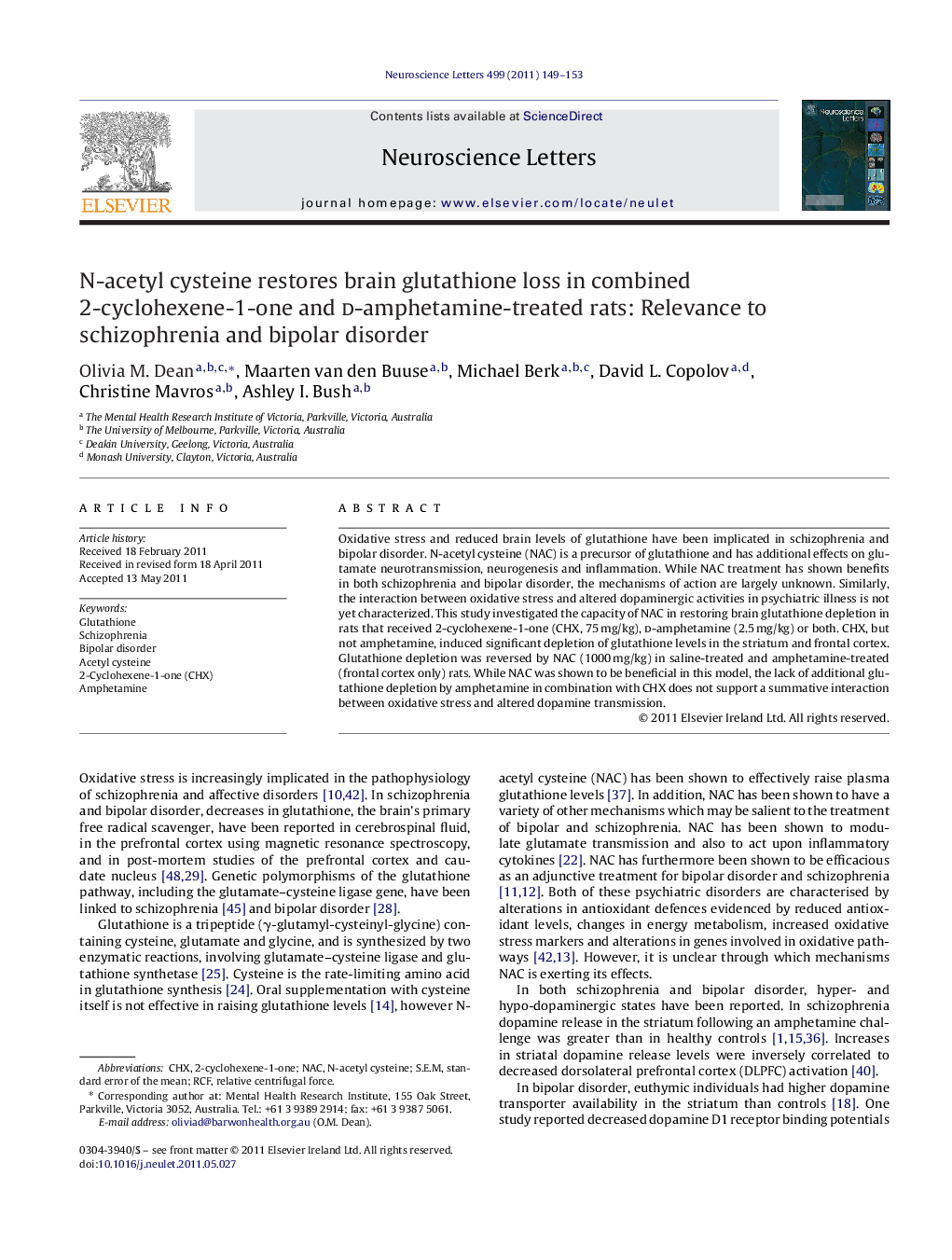| Article ID | Journal | Published Year | Pages | File Type |
|---|---|---|---|---|
| 4344915 | Neuroscience Letters | 2011 | 5 Pages |
Oxidative stress and reduced brain levels of glutathione have been implicated in schizophrenia and bipolar disorder. N-acetyl cysteine (NAC) is a precursor of glutathione and has additional effects on glutamate neurotransmission, neurogenesis and inflammation. While NAC treatment has shown benefits in both schizophrenia and bipolar disorder, the mechanisms of action are largely unknown. Similarly, the interaction between oxidative stress and altered dopaminergic activities in psychiatric illness is not yet characterized. This study investigated the capacity of NAC in restoring brain glutathione depletion in rats that received 2-cyclohexene-1-one (CHX, 75 mg/kg), d-amphetamine (2.5 mg/kg) or both. CHX, but not amphetamine, induced significant depletion of glutathione levels in the striatum and frontal cortex. Glutathione depletion was reversed by NAC (1000 mg/kg) in saline-treated and amphetamine-treated (frontal cortex only) rats. While NAC was shown to be beneficial in this model, the lack of additional glutathione depletion by amphetamine in combination with CHX does not support a summative interaction between oxidative stress and altered dopamine transmission.
► 2-Cyclohexene-1-one depletes glutathione levels in the striatum and frontal cortex. ► Amphetamine treatment in glutathione depleted rats does not further deplete brain glutathione. ► N-acetyl cysteine (NAC) restores brain glutathione levels in depleted rats. ► NAC partially protects brain glutathione levels in depleted rats co-administered with amphetamine. ► This further supports the use of NAC in clinical conditions involving glutathione deficiency.
